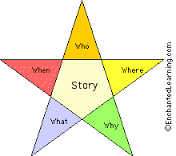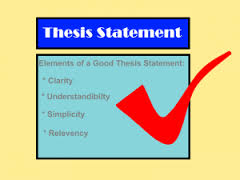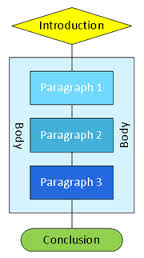Category Training Teachers

TOEFL Prep and Test-taking Strategies
Ecuador has used the TOEFL ibt to evaluate its English teachers, so PCVs here often present TOEFL training as part of their service projects. We have compiled TOEFL ibt Prep and Test-taking Strategies, a concise text to use with teachers and students who are planning to take the exam.

Graphic Organizers
Graphic organizers are valuable tools, especially for reading lessons, which often require that students comprehend abstract concepts. Students use organizers to visualize concepts, manage information, and recall details. Designs are numerous, making them adaptable to your lessons!

Hands-On Activities for Literacy, Math, and Science
Our Peace Corps knowledge database offers a fantastic manual published in May 2015 by the Office of Overseas Programming and Training Support (OPATS). Hands-On Activities: A Literacy, Math, and Science Resource Manual comprises over 50 activities for elementary students.

Picture-bound Travel Adventure
Intermediate- level EFL students work in groups to write and tell a creative, cohesive travel adventure based on the people and places they select from pictures.

Establishing Classroom Procedures
Ecuador TEFL PCV John Buckner created this PowerPoint to help his teachers get back to school on the right footing.

TOEFL Reading Question Types
Ecuadorian PCV Elizabeth Sypher shares her teacher-training PowerPoint about the TOEFL reading section.

Teacher Observation, Feedback, and Meeting Templates
Ecuador PCV Yajaira Hernandez shares the templates she uses to track teacher meetings, class observations, and post-class reflection and feedback.

Unit Planning Templates
To facilitate her work and that of the 20 English teachers at her school, Ecuador PCV Yajaira Hernandez created two unit planning documents to ensure that her area met their lesson objectives and incorporated the four skills: reading, listening, speaking, and writing.

TOEFL Integrated Writing
Ecuador TEFL PCVs Nikki Rowley and Clare MacKenzie created this PowerPoint for a TOEFL writing workshop with local teachers.

Having Fun Writing Poetry
Ecuador TEFL PCV Miranda Duncan shares her intriguing approach to making writing poetry fun using the cinquain poem as a model.

Online Vocabulary Sites
PCVs use a variety of methods to help teachers and students increase their vocabulary. Ecuadorian teachers and college students hoping to study abroad often must take English fluency tests that require knowledge of specific terms and words. These online sites offer words and phrases that frequently appear on the tests.

Campus Challenges
Ecuadorian TEFL PCVs, and probably those in other countries, assist students and teachers alike in preparing to take the TOEFL or Cambridge exams to study abroad or to meet government requirements for teaching positions. Understanding U. S. college campus environments and vocabulary and the situations new students face is crucial to score well on a […]

Student Storytellers
StoryCorps is a nonprofit organization that records and archives on its website a wide variety of stories told by the protagonists, their families, and friends. The sometimes touching, funny, riveting, or surprising tales offer our TEFL and ESL students and fellow teachers insight into U. S. culture. Moreover, the recordings and transcripts provide written and […]

Synthesizing
Synthesizing is another critical skill that our students and teachers need to master to do well on tests and in the classroom.

Paraphrasing and Summarizing
This post in our series on academic skills provides an overview of paraphasing and summarizing, along with a worksheet for teacher and student practice.

Skimming and Scanning
Skimming and scanning are critical academic skills that our students and teachers need to succeed throughout their careers. This post is another in our series on acquiring or honing academic skills.

Taking Notes
Many TEFL PCVs teach TOEFL and various Cambridge exam prep courses. Acquiring or honing academic skills such as taking notes is critical to the candidate’s success on exam day; moreover, these skills aid our students throughout their academic lives and often afterward on the job. This post is one of a series on academic skills.

Writing Series Part Four: Putting the Essay Together, Coherently
In Part Four, we offer Ecuador PCV Nikki Rowley’s step-by-step approach to writing an essay that answers the most common TOEFL independent essay question type, “Do you agree or disagree …?” Following that is a summary of points writers should take into account that will make any essay coherent and, therefore, persuasive.

Writing Series Part Three: Thesis Statements
In Part Three, we talk about the thesis statement, which is the most important sentence in the essay. The overview is adapted from a University of North Carolina Writing Lab handout. Examples of thesis statements, written by Ecuador PCV Nikki Rowley for the sample TOEFL independent essay questions shown in Part One mind maps, are provided […]

Writing Series Part Two: Independent Five-paragraph Essay Structure
This post address an essay’s structure, particularly the five-paragraph essay typically written for the TOEFL or IELTS independent essay.

Writing Series Part One: Brainstorming with Mind Maps
Peace Corps TEFL volunteers in Ecuador teach middle school, high school, and college students as well as local English teacher counterparts. Clearly, we teach writing at all language levels and have different goals based on the clients we serve. Since many current Ecuadorian English teachers and, also, college students who have received scholarships to study […]

Understanding the Speaker’s Attitude
The door to successful listening, especially understanding informal presentations and conversations, hangs on a number of hinges like utterances, useful expressions, idioms, pronunciation, tone of voice, facial expression and gestures (if video is available), and attitude. These components are often related and, as a whole, give listeners a clearer idea of what they have heard.

Vocaroo in TEFL Setting
I imagine that a woeful lack of classroom technology is not unique to Ecuador public schools, so I’m delighted that a fellow PCV directed me to the free, online voice recorder app at Vocaroo.com. The service, which is easy to use and doesn’t require an account, login, or password, offers TEFL teachers and their students […]

Brainstorming: Part Two
Peace Corps Ecuador Volunteer Kate Barba produced this PowerPoint presentation and workshop for the University of Machala’s ESL teacher candidates. Prewriting is covered in more depth than in the previously posted “Brainstorming” PowerPoint as these prospective teachers have higher English fluency. Volunteers who are teaching college students or advanced speakers will find this resources useful.

Chicago Food Tour Cultural Exchange
We love food, especially food that stimulates and surprises! EFL students and teachers are usually surprised to learn that the US population comprises every nationality on Earth. Realizing how diverse our country is–waves of immigration have been our history–many EFL learners understand that our language varies across the nation, not to mention internationally. This lesson […]

Prewriting Brainstorming
Teaching the writing of academic English to Ecuadorian college students who wished to study abroad taught me that prewriting is critical to all successful writing. My favorite prewriting technique is brainstorming and creating cluster or bubble maps. This PowerPoint explains the why and how.

Role Play Scenarios
Peace Corps Ecuador TEFL staff provided volunteers with this list of role plays for duos to use in planning classroom activites with our counterparts, high school teachers and their students. These scenes, in most cases, could be expanded to include roles for more students, which is helpful when teaching shy students or beginners.

Pastimes Mingle
In this activity and lesson plan, adapted from an article from the US Department of State’s English Teaching Forum 2014, No 2, students mingle and interact, in pairs and then with the rest of the class, as they discuss pastimes.

Vocabulary: a powerful weapon
Peace Corps Regional Volunteer Leader Nikki Rowley created two PowerPoints that show the importance of vocabulary and offer games to teach it in the classroom.

Idiomatic Expressions
Learning idioms is a challenge for any second language learner as they vary: by the country and even the region in which the language is spoken; over time and with new ideas and technologies; and by the context in which they are used. Students usually have a lot of fun ascertaining the meanings, and teachers can […]

